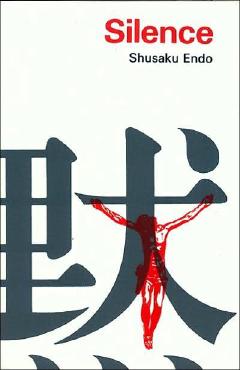
- Title
- Silence
- Author
- Shūsaku Endō
- Format
- Audio
This book shot straight onto my favorite books list. It is a fictional story based on historical events: it tells the story of Jesuit missionaries operating under intense government persecution in 17th century Japan. But it is really a book about doubt, faith, and a yearning for assurance. In this book that takes the form of a desire to hear the voice of God. But while these characters are Christian, this is not a Christian book. At least it isn’t to me.
Artistically it is a remarkable achievement. Given the title, and the themes, it is unsurprising but delightful that the book is full of intricate sound detail. We hear, as much as see, the Japan the characters inhabit. In this way it reminds me of The Virgin Suicides, another book that makes heavy use of non-visual imagery. Consider this passage, for example, after the protagonist Rodrigues has witnessed the execution of a fellow prisoner. There are screams. And then the prison courtyard falls silent. Finally, we hear the cry of the cicada. As Rodrigues processes what he has witnessed we read:
Yet his perplexity did not come from the event that had happened so suddenly. What he could not understand was the stillness of the courtyard, the voice of the cicada, the whirling wings of the flies. A man had died. Yet the outside world went on as if nothing had happened. Could anything be more crazy? Was this martyrdom? Why are you silent? Here this one-eyed man has died—and for you. You ought to know. Why does this stillness continue? This noonday stillness. The sound of the flies—this crazy thing, this cruel business. And you avert your face as though indifferent. This … this I cannot bear.
Rodrigues wishes for some divine intervention in the form of a voice, or perhaps of thunder, but he is left with stillness. He is left with the natural world. It is powerful metaphor built around aural imagery. The book is full of this kind of thing.
I also admire Endō’s version of Christianity so much. Two lines best illustrate this. First, his vision of Christ:
Christ did not die for the good and beautiful. It is easy enough to die for the good and beautiful; the hard thing is to die for the miserable and corrupt.
And even more so his definition of sin:
Sin is not what it is usually thought to be. It is not to steal and tell lies. Sin is for one man to walk brutally over the life of another and to be quite oblivious of the wounds he has left behind.
I would give everything to live in a world where Christianity truly embraced these views.
Silence is moving, powerful, thought-provoking, and exquisitely crafted.
